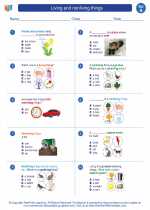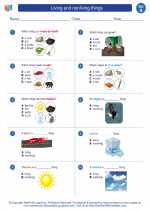Water Balance
Water balance refers to the regulation of the amount of water in the body to maintain homeostasis. It involves the intake and output of water and is essential for the proper functioning of the body.
Factors Affecting Water Balance
- Intake: Water intake can occur through drinking fluids and consuming foods with high water content.
- Output: Water output can occur through urine, sweat, breathing, and feces.
- Regulation: The body regulates water balance through mechanisms such as thirst, hormonal control of urine production, and reabsorption of water in the kidneys.
Importance of Water Balance
Water balance is crucial for various bodily functions, including:
- Temperature regulation: Water helps regulate body temperature through sweating and evaporation.
- Nutrient transport: Water aids in the transport of nutrients and oxygen to cells.
- Waste removal: Water is essential for the excretion of waste products through urine and feces.
- Cell function: Water is a key component of cells and is involved in various cellular processes.
Study Guide
To understand water balance, consider the following key points:
- Describe the factors that affect water intake and output in the body.
- Explain the mechanisms through which the body regulates water balance.
- Discuss the importance of water balance for bodily functions such as temperature regulation, nutrient transport, and waste removal.
- Identify the role of water in maintaining proper cell function.
Understanding water balance is essential for maintaining overall health and well-being. By grasping the factors affecting water intake and output, as well as the body's regulation of water balance, you can appreciate the significance of staying properly hydrated for optimal bodily function.
.◂Science Worksheets and Study Guides First Grade. Living and nonliving things
Study Guide Living and nonliving things
Living and nonliving things  Activity Lesson
Activity Lesson Living & Non-living Things
Living & Non-living Things  Worksheet/Answer key
Worksheet/Answer key Living and nonliving things
Living and nonliving things  Worksheet/Answer key
Worksheet/Answer key Living and nonliving things
Living and nonliving things  Worksheet/Answer key
Worksheet/Answer key Living and nonliving things
Living and nonliving things  Worksheet/Answer key
Worksheet/Answer key Living and nonliving things
Living and nonliving things  Vocabulary/Answer key
Vocabulary/Answer key Living and nonliving things
Living and nonliving things 

 Activity Lesson
Activity Lesson
 Worksheet/Answer key
Worksheet/Answer key
 Worksheet/Answer key
Worksheet/Answer key
 Worksheet/Answer key
Worksheet/Answer key
 Worksheet/Answer key
Worksheet/Answer key
 Vocabulary/Answer key
Vocabulary/Answer key

The resources above cover the following skills:
Concepts of Life Science (SC1, SC2, SC3)
The student demonstrates an understanding that all organisms are linked to each other and their physical environments through the transfer and transformation of matter and energy by identifying and sorting examples of living and non-living things in the local environment. (L)